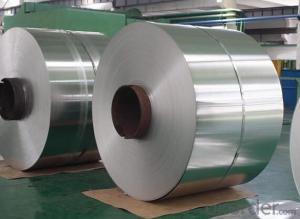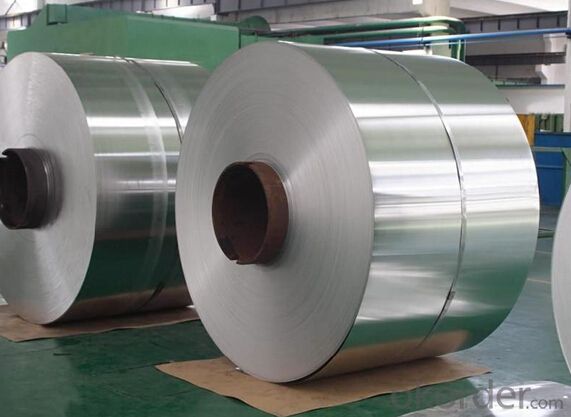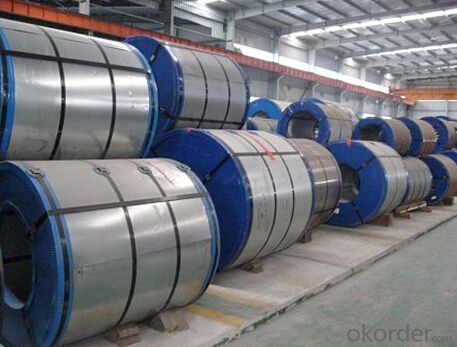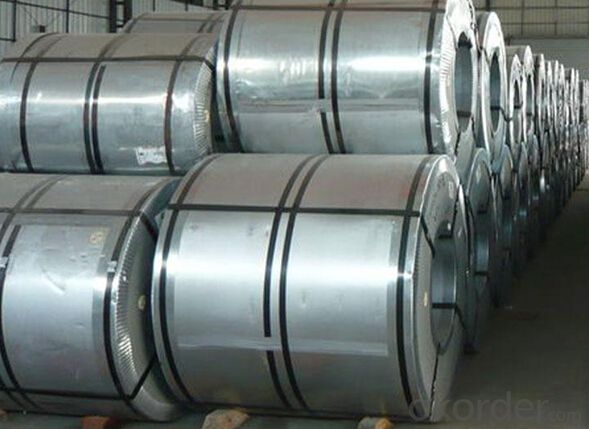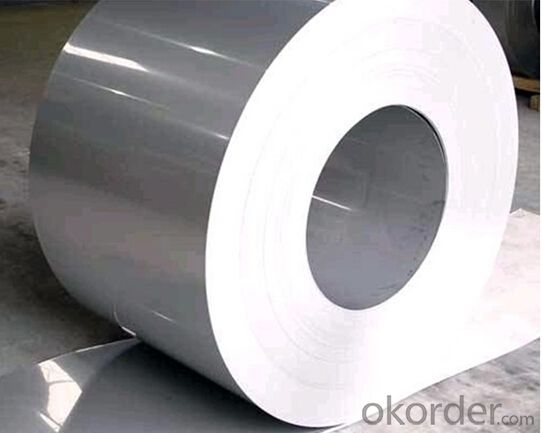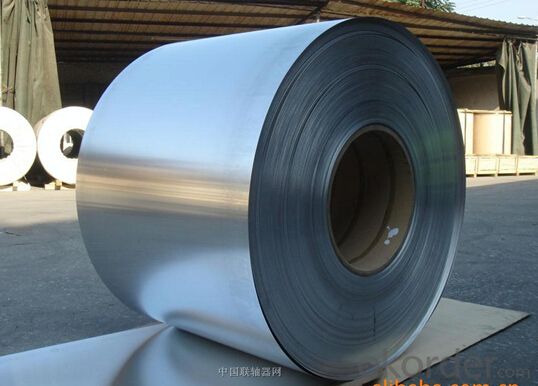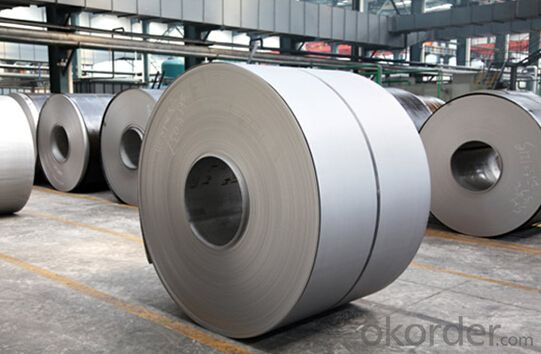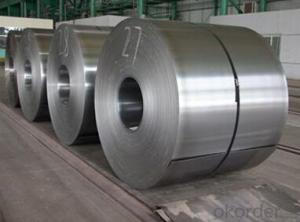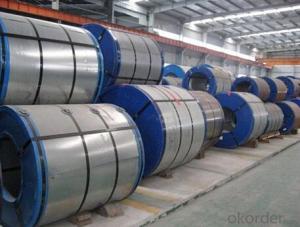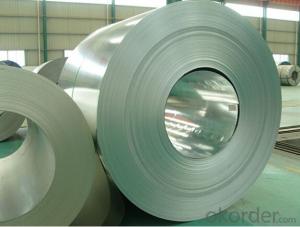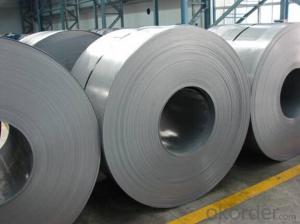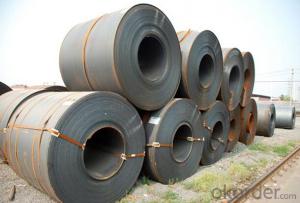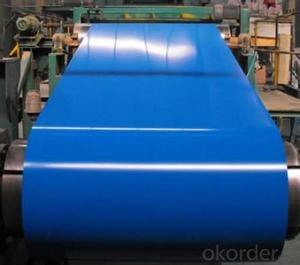Grade JIS CGC340-570 Galvanized Steel Coil
- Loading Port:
- Tianjin
- Payment Terms:
- TT OR LC
- Min Order Qty:
- 3 m.t.
- Supply Capability:
- 10000 m.t./month
OKorder Service Pledge
OKorder Financial Service
You Might Also Like
Specification
Grade JIS CGC340-570 Galvanized Steel Coil
Specification of Grade JIS CGC340-570 Galvanized Steel Coil
1. Galvanized Steel Coil
(1) Width: 600-1570mm
(2) Thickness: 0.13-5.0mm
(3) Grade: JIS G3302-SGCC-SGC570, SGCH (full hard-G550), SGHC-SGH540
EN10346-DX51D+Z, DX53D+Z, S250GD-S550GD
ASTM A653-CS-B, SS255-SS550
(4) Zinc Coating: Z40g/m2~Z500g/m2 (both side total coating thickness)
2. Galvalume Steel Coil
(1) Width: 600~1500mm
(2) Thickness: 0.15~2.30mm
(3) Grade: JIS G3321-SGLCC, SGLC400-570, (G550)
EN10346-DX51D+AZ, DX53D+AZ, S250-S550
ASTM A792M CS-B, SS255-SS550
(4) AZ Coating: AZ50~AZ185g/m2
3. Prepainted Galvanized Steel Coil (PPGI)
(1) Width: 600~1250mm
(2) Thickness: 0.19~1.50mm
(3) Grade: JIS G3312-CGCC, CGC340-570, (G550)
ASTM A755M CS-B, SS255-SS550
(4) Zinc Coating: Z40g/m2~Z500g/m2 (both side total coating thickness)
4. Prepainted Galvanized Steel Coil (PPGL)
(1) Width: 600~1250mm
(2) Thickness: 0.20~1.50mm
(3) Grade: JIS G3322-CGLCC, CGLC340-570, (G550)
ASTM A755M CS-B, SS255-SS550
(4) AZ Coating: AZ50~AZ185g/m2 (both side total coating thickness)
5. Cold Rolled Steel Coil (Soft) (for further information, pls click the product name)
(1) Width: 600~1570mm
(2) Thickness: 0.13~2.50mm
(3) Grade: JIS G3141-SPCC-SD, SPCD-SD, SPEC-SD
JIS G3135-SPFC 340/390/440
EN10130-DC01, DC03, DC04
SAE1006, SAE1008
ASTM A424-TypeⅡ
6. Cold Rolled Steel Coil (Full Hard) (for further information, pls click the product name)
(1) Width: 600~1570mm
(2) Thickness: 0.13~2.50mm
(3) Grade: JIS G3141-SPCC-1B, SPCC-1D
7. Hot Rolled Steel Coil
(1) Width: 1000~1524mm
(2) Thickness: 1.20~16.5mm, other thickness can be negotiation
(3) Grade: JIS G3101-SS400, JIS G3132-SPHT1/2/3, ASTM A36, Q195, Q235 etc.
Company Introduction of the Grade JIS CGC340-570 Galvanized Steel Coil
CNBM International Corporation is the most import and export platform of CNBM group(China National Building Material Group Corporation) ,which is a state-owned enterprise, ranked in 270th of Fortune Global 500 in 2015.
With its advantages, CNBM International are mainly concentrate on Cement, Glass, Iron and Steel, Ceramics industries and devotes herself for supplying high quality series of refractories as well as technical consultancies and logistics solution.
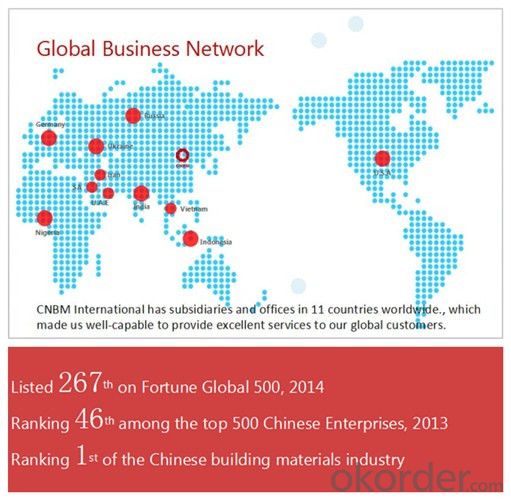
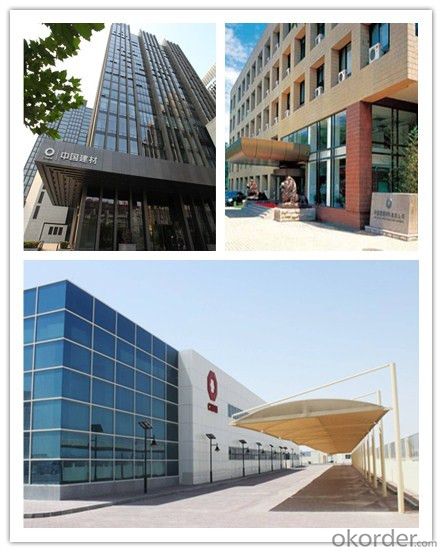
Packaging & Delivery of the Grade JIS CGC340-570 Galvanized Steel Coil
Packaging Detail | Sea worthy packing /as per customer's packing instruction |
Delivery Detail | 15 ~ 40 days after receiving the deposit |
Products Show:
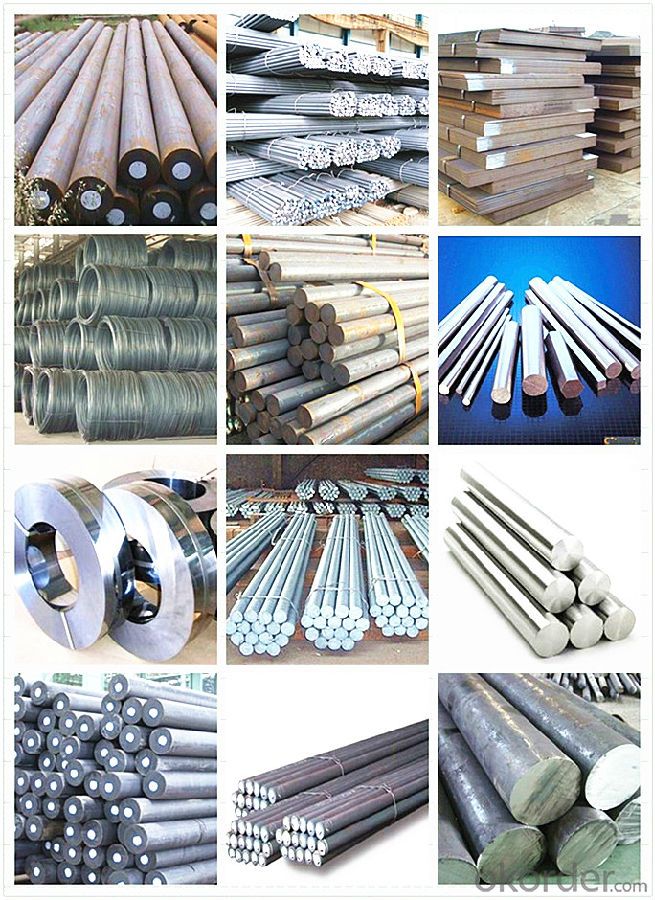
FAQ:
Are you a trading company or manufacturer? | Manufacturer |
What’s the MOQ? | 3 metric ton |
What’s your delivery time? | 15-35 days after downpayment received |
Do you Accept OEM service? | Yes |
what’s your delivery terms? | FOB/CFR/CIF |
What's the Payment Terms? | 30% as deposit,70% before shipment by T/T |
Western Union acceptable for small amount. | |
L/C acceptable for large amount. | |
Scrow ,Paybal,Alipay are also ok | |
Why choose us? | Chose happens because of quality, then price, We can give you both. Additionally, we can also offer professional products inquiry, products knowledge train (for agents), smooth goods delivery, excellent customer solution proposals. |
What's your available port of Shipment? | Main Port, China |
What’s your featured services? | Our service formula: good quality+ good price+ good service=customer's trust
|
Where are your Market? | Covering more than 160 countries in the world |
- Q: Can special steel be used in the agricultural equipment manufacturing industry?
- Yes, special steel can be used in the agricultural equipment manufacturing industry. Special steel alloys have properties such as high strength, durability, and resistance to corrosion, which make them suitable for various components and machinery used in agriculture. These include plows, harvesters, tractors, and other farming equipment that require robust materials to withstand harsh conditions and heavy loads.
- Q: Is special steel magnetic?
- Yes, special steel can be magnetic depending on its composition and treatment. Certain types of special steel, such as ferritic and martensitic stainless steels, are magnetic, while others like austenitic stainless steels are generally non-magnetic.
- Q: How does special steel perform in molding applications?
- Due to its exceptional properties and performance, special steel is highly favored in molding applications. Firstly, its excellent hardness and wear resistance ensure that it remains undamaged and maintains its shape even under high pressure and temperature during the molding process. Additionally, special steel's superb thermal conductivity allows for efficient heat transfer, resulting in uniform heating and cooling of the mold. This leads to consistent and high-quality molded products and reduces cycle times, thus enhancing productivity. Furthermore, special steel's superior corrosion resistance prevents any chemical reactions or rusting, ensuring its durability and longevity even when exposed to moisture or corrosive substances. When it comes to machinability, special steel is easily workable, enabling precise and intricate mold designs. This facilitates the production of detailed molded products with high accuracy and dimensional stability. Lastly, special steel's excellent strength and toughness make it highly resistant to cracking or fracturing under high stress conditions. Consequently, this guarantees the longevity and reliability of the mold, minimizing the need for frequent repairs or replacements. Overall, the exceptional properties of special steel, including hardness, wear resistance, thermal conductivity, corrosion resistance, machinability, and strength, make it an ideal choice for molding applications. It ensures high-quality and consistent molded products, increased productivity, and extended lifespan for the molds.
- Q: Can special steel be used in the aerospace industry?
- Yes, special steel can be used in the aerospace industry. Special steel alloys, such as stainless steel and high-temperature alloys, are often utilized in the aerospace industry due to their excellent strength, corrosion resistance, and high-temperature capabilities. These properties make special steel an essential material for components like aircraft engines, landing gear, and structural parts, ensuring safety and reliability in the aerospace industry.
- Q: Can special steel be used in the electronics industry?
- Yes, special steel can be used in the electronics industry. It is commonly used for various components such as connectors, springs, and contacts due to its high strength, corrosion resistance, and electrical conductivity properties.
- Q: What are the different methods of preventing hydrogen-induced cracking in special steel?
- There are several methods to prevent hydrogen-induced cracking in special steel. One common approach is to use preheating techniques, which involve heating the steel before welding to reduce hydrogen levels and minimize the risk of cracking. Another method is to employ low-hydrogen welding consumables, such as low-hydrogen electrodes or filler wires, which have reduced hydrogen content and can help prevent cracking. Additionally, post-weld heat treatments, such as stress relieving or tempering, can be implemented to remove residual hydrogen and relieve stress in the steel, reducing the chances of cracking. Proper cleaning and preparation of the steel surface, as well as controlling the welding parameters, are also crucial in preventing hydrogen-induced cracking.
- Q: How does special steel contribute to the mining machinery industry?
- Special steel contributes to the mining machinery industry by providing high-strength and durable materials for the construction of mining equipment. With its exceptional mechanical properties and resistance to wear, corrosion, and high temperatures, special steel enhances the performance and longevity of mining machinery, ensuring efficient and reliable operations in harsh mining environments.
- Q: What are the specific requirements for special steel used in the power transmission industry?
- The durability, strength, and resistance to various environmental factors are crucial requirements for special steel used in the power transmission industry. Power transmission equipment operates under high loads, extreme temperatures, and corrosive conditions, making these requirements essential. Here are some specific requirements for special steel in this industry: 1. High strength is necessary for the steel to withstand the mechanical stresses and loads imposed by power transmission equipment. This ensures effective weight carrying and resistance to deformation or failure. 2. Sufficient hardness is needed to resist wear and abrasion. The constant friction and contact in power transmission equipment require steel that can withstand these forces without quick deterioration. 3. Excellent resistance to corrosion and rusting is crucial due to the frequent exposure of power transmission equipment to moisture, chemicals, and other corrosive substances. The steel must withstand these conditions without deteriorating. 4. High heat resistance is necessary as power transmission equipment operates at high temperatures, especially in power generation and distribution. This prevents deformation, strength loss, and failure under extreme thermal conditions. 5. Good electrical conductivity is required for certain power transmission components to ensure efficient electricity transmission. Steel used for conductive purposes must have low electrical resistance to minimize power loss during transmission. 6. Excellent fatigue resistance is important for special steel used in the power transmission industry. This means the steel can withstand repeated cycles of stress and strain without cracking or breaking, ensuring long-term reliability and durability. 7. Dimensional stability is crucial for the steel to maintain its intended design and functionality over time, even under different operating conditions. In conclusion, the specific requirements for special steel in the power transmission industry include high strength, hardness, corrosion resistance, heat resistance, electrical conductivity, fatigue resistance, and dimensional stability. These requirements allow the steel to withstand demanding operational conditions and provide reliable and efficient power transmission.
- Q: How is wear-resistant steel used in mining equipment?
- Wear-resistant steel is commonly used in mining equipment due to its high durability and strength. It is utilized in various applications such as excavator buckets, crusher liners, and conveyor parts to withstand the harsh conditions of mining operations. The wear-resistant properties of this steel help to minimize abrasion and extend the equipment's lifespan, resulting in increased productivity and reduced maintenance costs.
- Q: How does special steel perform in heat treatment applications?
- Special steel is specifically designed to perform well in heat treatment applications. Unlike regular steel, special steel has been alloyed with specific elements to enhance its heat resistance and improve its mechanical properties. When subjected to heat treatment processes such as annealing, quenching, tempering, or hardening, special steel undergoes structural changes that result in improved strength, hardness, toughness, and wear resistance. The performance of special steel in heat treatment applications can be attributed to its unique alloying elements, such as chromium, molybdenum, nickel, and vanadium. These elements form various carbides, nitrides, or intermetallic compounds during heat treatment, which contribute to the overall improvement in the steel's properties. For example, chromium forms chromium carbides that increase hardness and corrosion resistance, while molybdenum and vanadium promote hardenability and wear resistance. Moreover, special steel exhibits excellent dimensional stability during heat treatment. It has a low tendency to warp or distort, ensuring that the final product maintains its desired shape and dimensions. This dimensional stability is particularly crucial for applications that require tight tolerances or intricate designs. Additionally, special steel offers consistent and reliable heat treatment results. Its composition and microstructure are carefully controlled, ensuring that it responds predictably to heat treatment processes. This allows manufacturers to achieve the desired mechanical properties consistently, reducing the risk of inconsistencies or failures in the final product. In summary, special steel performs exceptionally well in heat treatment applications. Its unique alloying elements, dimensional stability, and consistent heat treatment response make it an ideal choice for applications that require improved strength, hardness, toughness, and wear resistance. Whether it is for automotive components, tooling, or industrial machinery, special steel delivers reliable and enhanced performance after undergoing heat treatment processes.
Send your message to us
Grade JIS CGC340-570 Galvanized Steel Coil
- Loading Port:
- Tianjin
- Payment Terms:
- TT OR LC
- Min Order Qty:
- 3 m.t.
- Supply Capability:
- 10000 m.t./month
OKorder Service Pledge
OKorder Financial Service
Similar products
Hot products
Hot Searches
Related keywords
